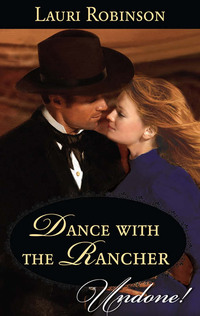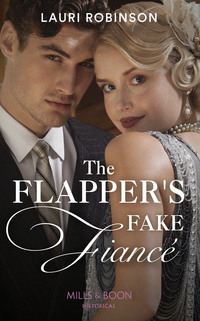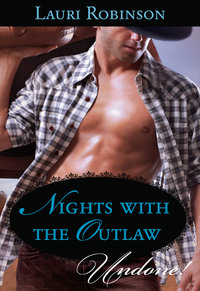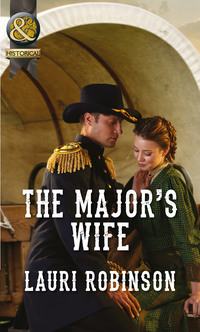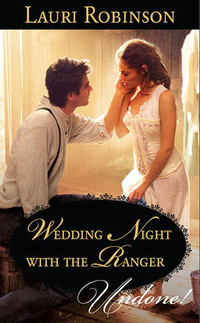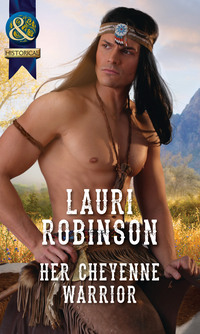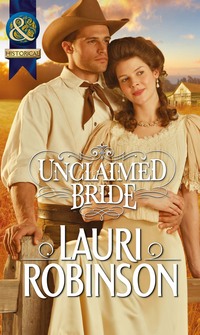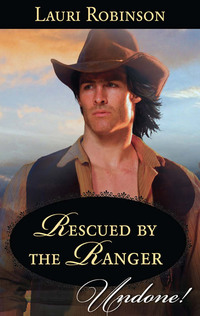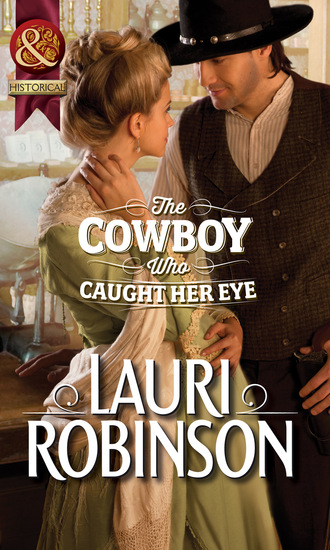
Полная версия
The Cowboy Who Caught Her Eye
“Wasn’t that amazing, Molly?” Karleen asked. “I’ve never seen Mr. Ratcliff speechless. I really should go tell Mr. Franks. He’d want to write an article about it in the weekly post.”
“No,” Molly said, “you won’t go tell Mr. Franks, you will finish unpacking the freight.” Too young to know better, Karleen was too friendly with strangers, no matter how many times Molly cautioned her on it, and that had the past five months of irritation coming to a head. Searching for something, anything, she could control, Molly pointed toward the doorway that led to the living quarters. “Ivy, it’s time for you to go finish your lessons.”
Instant regret shimmied up her spine. Two big brown eyes and a quivering lip told her just how snippy she sounded. Softening her tone, for Ivy didn’t deserve any wrath, Molly added, “I’ll come see how you’re doing in a few minutes.”
“Come on, Ivy,” Karleen said, walking around the counter while flashing Molly a quick shot of disdain. “Let’s go see how far you’ve gotten in your reader.” With another sharp glance, she added, “I’ll finish unpacking the crates afterward.”
Molly wanted to scream, mainly because she knew her sister was right. The freight could wait, but Karleen didn’t have the responsibilities she did, or the worries. And shouldn’t. Karleen was only sixteen—she, on the other hand, was twenty-three. Plenty old enough for responsibilities. And to know better.
Drawing a deep breath, Molly told herself to count to ten. If she voiced her opinion right now she’d tell the stranger, greased or not, those nails weren’t any stronger now than when they’d been sitting in rainwater, but Mr. Ratcliff, still shuffling across the porch, might hear, therefore she counted. She had counted to about five when the cowboy spoke.
“Why aren’t they in school?”
Spinning, she leveled a dull gaze on the man. Still conscious of listeners, she kept her voice low as she pointed out the obvious. “Because Karleen graduated last year, and Ivy is an Indian.”
His face was expressionless, but he might as well have been stomping one foot. A person full of antagonism sees it in another. “So? She’s still a child. Still needs to learn.”
“That’s true,” Molly said, wondering where the sudden urge to mollify him came from. For months she’d fought the town council, who refused to allow Ivy to attend school, but had gotten nowhere. She’d have been at this month’s meeting, too, but fearful someone might notice her growing girth, she’d pretended to have forgotten what night the meeting had been held. “But Indian children are not allowed to attend Huron’s public school.”
“Why?”
She picked up the tin of axle grease and carried it back to the shelf. “I was told it’s because the school is funded through the tax system and Indians don’t pay taxes.”
The cowboy—only cowboys wore guns and spurs—was leaning on the counter, watching her, which had her sucking in her stomach, though it was well covered with a dress two sizes too big and three underskirts, and all the sucking in the world wouldn’t flatten it. His, however, was as flat as the counter. The tan shirt tucked into his black pants didn’t have a single ripple.
The idea she’d noticed so much about him made her skin tighten. “Is there something you needed?”
He cocked a brow. “Actually, yes.”
She thought about waiting it out, but didn’t have the patience. “What?”
“One of those cinnamon rolls.”
With a piece of paper, she picked up a roll from the plate on the corner of the counter and folded the edges around the pastry so he could carry it out the door. Not eat it here. The price was posted and he slid the correct change across the counter. Usually, no matter who it was, she’d thank a customer for their purchase, but not today. Not him.
“Could I speak to the owner?”
Molly walked to a crate sitting at the other end of the counter, started lifting things out of the sawdust. “You are,” she said, experiencing the first bout of pride she’d felt in months.
“You?”
“My sister and I.”
Carter held in his surprise. He hadn’t overheard that while walking around town. Then again, besides the boy at the train depot, no one had mentioned the mercantile and he hadn’t asked, knew he’d be stopping by and would learn all he needed to know. His plan had included getting a job here, at the mercantile, so he could watch the money flowing in and out, but he’d expected a man to own the establishment. Not a snooty woman, younger sister and little Indian girl—who, in his opinion, should be on the other side of town in the brick building with all the other kids. He didn’t have a lot of tolerance for kids, but had even less for people mistreating them.
The woman, Maureen, she’d called herself, though the tiny splattering of freckles covering her cheeks made her look more like the name her sister had called her—Molly—paused while unloading the crate. Gave him another uppity stare.
“Did you have a complaint?” she asked.
He had plenty of complaints, but voicing them wouldn’t help his case, so he pulled up a grin. “Nope. Just wanted to say your reputation precedes you.”
Her glare turned omniscient, and said she didn’t like what she thought he knew. Which meant he had more to learn. Picking up the pastry, he nodded. “Your cinnamon rolls. I heard they’re the best around.”
She didn’t believe that any more than he did. Interesting. He tipped the brim of his hat with one hand. “Ma’am.”
He was out the door, but heard her growl nonetheless. That was one ornery woman, and irritating her had a smile wanting to crack his lips. He didn’t let it. Took a bite of the cinnamon roll instead, and then leaned one elbow on his saddle. The pastry was tasty, might be the best he’d ever had, and he ate it right there, watching the front door of that mercantile, coming up with a new plan.
When the roll was gone, he folded the paper and stuffed it in his saddlebag—never know when it might come in handy—and then he patted Sampson’s neck while untying the reins from the post. “Time to visit Ted Wilcox. We need more information before we set our plan in place, boy. Then I’ll get you some oats.” Keeping his voice low while conversing with the horse—as he often did on cases—he added, “Molly Thorson is hiding a secret as big as you, and my gut says money is involved. Stolen money.”
Chapter Two
Ted Wilcox was at the train depot in his office on the second floor, and upon seeing him, the man nodded toward the steward sitting behind a desk in the outer room Carter had entered moments ago.
“J.T.,” Wilcox said, “go reserve a room at the hotel. There’s a guest on the next train that will be expecting it. Put it in the railroad’s name.”
“Yes, sir,” answered J.T., who was little more than a boy with round glasses and long brown hair, who just might be afraid of his own shadow.
Carter returned the young man’s nod, knowing Wilcox was reserving a room for him but didn’t want anyone to know that. He waited until the assistant was gone before crossing the room to shake the railroad man’s hand.
Average height and stocky, Wilcox displayed an attitude that said he expected to be listened to. “Mr. Buchanan, I presume?”
“Carter,” he answered.
“Ted,” the man offered in return. “Let’s step into my office.”
Carter followed through the thick wooden door. If the railroad had spent as much money on their passenger cars as they had this man’s office, they’d have a lot more happy travelers. Then again, maybe folks out here weren’t used to the plush cars the trains back east had. He hadn’t heard many complaints on his trip, but no one heard much over that brood of redheaded kids.
“The room I sent J.T. to reserve is for you,” Wilcox said as he walked around his big mahogany desk. “I was going to see to it during lunch, but since you hadn’t stopped in, I wondered if you’d been on the train.”
Carter questioned holding his explanation. This was the one thing he didn’t like about being a Pinkerton man. It was expected he should instantly trust his connections when on assignment, but he liked getting to know people first. In this instance, there wasn’t time. He needed to learn as much as possible, fast, to determine how—besides working there—he could watch the coming and going at the mercantile. Therefore, he’d have to give a little to get a little. “I wanted to get a feel for the town first.”
“Good idea,” Wilcox said, gesturing to a chair.
Once Carter sat, the man pulled open a drawer and handed a bill over the top of the desk.
“This is it, the only bill that’s surfaced,” the man said. “The serial numbers match those the mint confirmed were in the shipment stolen last year.”
A five. Crisp and new. Not so much as a corner bent. The numbers did match. Carter had memorized them. “In May?” he asked, verifying that’s when the bill was discovered.
“Yes. J.T. is who got it. He’d bought some things at the mercantile. The poor lad has a crush on the youngest Thorson girl, they went to school together. He showed it to me because he’d never seen a bill so new. I paid him ten dollars for it.”
Carter let a lifted brow express his thoughts.
Wilcox grinned. “The railroad paid him ten dollars for it. I recognized the serial numbers right away.” He took the bill Carter passed back across the desk and replaced it in the drawer. “J.T. thinks I just like new bills, so he’s on the lookout for more.” The man propped his elbows on his desk and laced his fingers together. “Nobody knows about the robbery, and the C&NW wants to keep it that way. Having people believe we lost that kind of money would damage our reputation. That wasn’t a passenger train. Not a single person boarded after it left Chicago, and no one got off until it arrived here. But the loss was noted in Nebraska.”
None of that was new information. Carter had read the inside report, knew how the railroad had covered the loss and tried to solve the inside caper themselves, without any luck, and now the owner wanted it completely investigated and resolved. Carter had also memorized the manifesto of passengers. Railroad men and soldiers.
“The money had been in a locked box in a private car,” Wilcox said. “The box was still there, just empty, and one man couldn’t have carried that amount out without being noticed, not with a hundred pockets. He’d have needed a carrying bag of some sort, and every man on that train was searched.”
None of this was new, and that’s what Carter needed, new information. “How’d the Thorson sisters end up owning the mercantile?”
“You’ve been there?”
He tipped his hat back a bit. “Had a cinnamon roll for lunch.”
“That’s what keeps people coming in their doors. The older sister came up with that idea.”
The way Wilcox leaned back in his chair and folded his arms said he wasn’t impressed. Carter waited, knew the man would say more.
“The Chicago and Northwestern Rail needs to own this town, Mr. Buchanan—Carter. We opened a dry-goods store three years ago, and little more than those cinnamon rolls keep people from buying everything they need from us instead of those sisters.”
“A little competition makes good business.” Normally he wouldn’t have voiced his opinion, but the situation merited it.
“Usually,” the other man answered, “but laying new lines is costly. What the railroad makes here is invested in more rails heading in all directions. Once the tracks are all constructed and C&NW trains are flowing, competition will be welcomed. Until then, it’s up to me, and now you, to see that every dollar spent in Huron flows through the railroad’s coffers.”
That wasn’t new either. Mining towns were the same. The trouble was greed. By the time the tracks were all laid, the railroad would have another reason why they needed to own everything. They always wanted more. And the man was wrong. It wasn’t up to Carter to see people spent their money with the railroad. He was a Pinkerton man. Solving a crime was his job.
“We almost had it,” Wilcox said. “Thorson’s Mercantile. The old man had never wanted a store, he was set on ranching. Raising horses for the army. Story is he found more money was to be made in selling supplies instead. We have the army’s business now, and thought after the man and his wife died the girls would close up shop. Instead they started selling those cinnamon rolls, and have kept a steady business going ever since. ‘Course, we haven’t hit them too hard—town folks like those girls, feel sorry for them, and we need to act accordingly. Keep it all undercover. You know how that is.”
Carter refrained from commenting. He did know how it was, but that wasn’t why he kept quiet. Molly Thorson was. He didn’t want to like anything about her. That snooty attitude of hers had set a frost deep in his bones, but, being an honest man, he had to admit he held a touch of respect for her. She had backbone, and finding a way to keep her doors open—fighting against the railroad—took pure gumption.
She was scared, too. He’d seen it in her eyes when he mentioned her reputation. Stolen money was a reputation killer.
All in all, every instinct Carter had told him he had to revert to his original plan. Get a job at the mercantile.
A knock sounded and Wilcox rose and walked across the room to crack open the door.
“I’m sorry, Mr. Wilcox, but the hotel is full up. Seems that woman with a passel of kids that got off the 11:10 is Mick Wagner’s mail-order bride.”
An involuntary shiver raced over Carter’s shoulders.
“Seems it took up the hotel’s last three rooms just to find enough sleeping room for all of them. They’ll be there for a couple days, too. Walt Smith went to tell Mick she’s—or they’ve—arrived, but it’ll take him three days to ride out there and back.”
“Thanks, J.T.,” Wilcox said, closing the door. When he turned, he shrugged.
“How many kids did that woman have?” Carter hadn’t meant to say that aloud.
Wilcox laughed. “I couldn’t count them all, not with the way they were running around like heathens.” He shrugged again. “I didn’t know Mick ordered a bride.”
Carter’s tongue stayed put, but sympathy did cross his mind. Had to. Any man had to feel sorry for another one getting in that position. A wife and a passel of kids. All at once.
“There is a boardinghouse on the east edge of town, but the widow Reins runs it, and she’s as nosy as a coon.”
“That’s all right,” Carter said. “I’ll find a place to bed down for the night.”
“What about tomorrow?”
“By then I’ll have a job at the mercantile. It’ll come with room and board.”
Wilcox let out a cynical laugh. “Thorson’s Mercantile?”
Carter didn’t nod, but did let a tiny grin emit.
“You Pinkerton men must be brave,” Wilcox said. “Or crazy.”
Carter held his opinion on that, too.
By noon the next day he was back at the mercantile, buying another one of those cinnamon rolls. Molly Thorson wasn’t any more pleasant today than she’d been yesterday, but the rolls were just as good. Leastwise it smelled that way, he’d yet to buy and eat one.
“What do you want?” she demanded while glaring up at him from where she stood behind the counter unpacking another crate.
Nothing to do with you, he almost snapped in return. She looked about as friendly as a thunderstorm, and that was before taking in account her ugly gray dress. But a white apron covered up most of the dull color, and he had a job to do. “I’m working my way to Montana,” he said.
Her snarled “So?” was quickly followed with “Oh, good grief.”
He’d never heard that reaction to the territory. Yet Montana had nothing to do with her response.
“It’s broken.” She was growling again and holding up a fancy teacup. “Mrs. Rudolf ordered a set of six cups and saucers,” she said, turning that nasty glare on him again. “My best sale all month, and one is broken. She’s going to be furious. Her garden party is this weekend.”
Her eyes were the palest blue he’d ever seen—not even the sky held that shade—but it was how she was blinking a massive set of eyelashes, as if not wanting to cry, that made his throat get thick. He hadn’t thought of the orphanages from his childhood in years, yet he was right back there. Seeing the faces of all those unwanted little souls. “You still have five,” Carter said.
“What good will that do?”
He didn’t know. It had been all he could think to say. She’d gone from snippy to sappy as fast as an alley man flips a coin. That thought—alley men, thieves really—sent his mind in another direction.
That’s how he’d become a Pinkerton agent. Allan Pinkerton himself had learned that Carter had gained access to the den of several alley thieves, and had hired him as an inside informant. It had been shortly after he’d arrived in Chicago, still just a kid really, and he’d thought joining those thieves might be his only way of making money. He had a lot to thank Allan for. Whether the man knew it or not, he’d nipped Carter’s thieving days in the bud. Changed his whole outlook. If not for Allan, Carter might have been walking on the other side of the law, and it was best he never forgot that.
Carter spun on one heel, but hadn’t made it more than a yard away from the counter when a gasp had him turning around. Those faded blue eyes were locked on the doorway and he twisted slowly, curling one hand around the handle of his gun, not sure what he’d see.
The tension gripping his spine dissolved. It was nothing more than a woman, one who might outweigh Sampson, but a woman no less. He let his gaze wander back to Molly Thorson, where it stuck. She’d gone pale and the hand over her mouth had him wondering if she was going to chuck her lunch all over that crate of dishes. He’d seen that look back at the orphanages, too, after kids had eaten some of the slop forced on them.
Growing whiter than her apron, she whirled around and shot through the open doorway the sister and the little Indian girl had used yesterday. He waited a moment, but when no one reappeared, Carter glanced back toward the open doorway. The big woman was about to barrel over the threshold and instinct told him this was Mrs. Rudolf, the owner of a broken cup.
A Pinkerton man was an actor, could hop from one character to the next just by changing his hat. Carter did that—removed his hat and his gun belt, put them both on a shelf on the backside of the counter and was gingerly setting pink-and-gold cups upon matching saucers when the woman arrived, eyeing him critically over the rim of her round glasses.
“Good afternoon, Mrs. Rudolf,” he said with all the pleasantry of a store clerk.
Her frown left indents on her face the size of those he’d seen in the dried-out ground down in Arizona.
“Carter Buchanan.” He gave a nod over one shoulder. “I’m helping out the Thorson sisters.” Drawing the woman’s attention to the cups, he continued, “Got some mighty fancy cups here.”
The deep wrinkles on her forehead softened as she picked up a cup. “Oh, my, they are absolutely beautiful, aren’t they?”
“Yes, they are. I’ve never seen anything like them.” He wasn’t lying. There’d never been a reason for him to take much interest in teacups. Wouldn’t be now if one of the Thorson sisters would step through that doorway.
“I was getting worried they wouldn’t arrive in time for my party,” Mrs. Rudolf said, still gazing at the cup as if it was gold instead of just painted that way. “They were supposed to be in last week, you know.”
No, he didn’t know that, but he could imagine how displeased this woman was going to be when she learned one of her treasured cups was broken. Therefore he said, “I know. Miss Thorson is very upset over that, and she’s even more disturbed by how carelessly her order was handled. Tore off for the back room just moments ago.” Though he doubted it, he added, “Probably to pen her correspondence.”
“What correspondence?”
“To the freight company, over the shoddy way they treat merchandise. The way they treated you.” He refrained from specifically naming the railroad, having to balance things as carefully as a beam scale weighing gold dust.
“Me?”
“Yes, ma’am,” he said, remaining in character. “I don’t see the cause to get so riled up, but you know Molly.” The name slipped off his tongue as if he’d been saying it for years. Maybe he had—he’d worked with a lot of people, and remembering every name would be impossible.
Mrs. Rudolf nodded. “Yes, I do.” Leaning closer, she whispered, “She never used to be this way. It’s only been recently.”
Doubt was settling hard again, but he agreed with a nod. “I’m sure it’s things like this. Too many mishaps wear a person down.”
“Things like what?”
“I know someone as reasonable as you would never let anything this silly upset them.” He paused then, as if taken aback for a moment. “You are a reasonable woman, aren’t you, Mrs. Rudolf?”
“Of course I am.”
Her insistence proved she wasn’t, but he’d already figured that out, so he smiled. “I thought so.” Going a step further, which he did only when the situation called for it, Carter gave her a touch of flattery. “Anyone with eyes as tender as yours is very reasonable.”
It worked. Her weathered cheeks turned as pink as the roses painted on her cups.
“I knew one broken cup wouldn’t disrupt your garden party,” he said brightly.
“Broken cup!”
The women around here sure did anger quickly, not so unlike everywhere else in the world. Keeping his tone even, and adding a sorrowful look, he said, “Yes, ma’am. That’s why Molly is so flustered. Over the way the freight company treated you.” He patted the old woman’s hand. “And I’m glad you don’t blame her. I’m sure your guests will understand. Besides, it’s only one. You won’t have more than four guests, will you?” A woman with this disposition couldn’t have many friends. Then again, birds of a feather flock together.
“Well, no, there’ll just be the four of us. Wives of the town council.” Her tone implied the importance of that. Or at least she thought it was significant.
“Good.” He’d been wrapping the cups and saucers in paper from the shelf next to his hat and gun belt, and now bent to pick up a small crate he assumed was for this purpose. “You’ll even have an extra to spare, then.” After piling the dishes in the box, Carter picked up the broken cup. “I’ll keep this one, to prove it’s damaged, but feel free to explain to the women what happened and how Molly is assuring you’ll receive the sixth one as soon as possible.” Before Mrs. Rudolf could answer—it was obvious she was thinking through everything he’d just said—he glanced around, continued, “Now, where did I see that bill?”
Her silence said she was still contemplating things, so he ran a hand through his hair as if growing frustrated. “I know I saw it. I don’t want to upset Molly more by—”
“I remember how much it was,” the woman said, digging in her little lace-covered wrist bag.
“Thank you,” he said, exaggerating his supposed relief. “You certainly are a reasonable woman, Mrs. Rudolf, and for that, take ten percent off what you owe.” Eyeing her pointedly, he added, “You can pay the balance when your sixth cup arrives.”
The bills she laid on the counter were old and wrinkled, but he still took a moment to glance at the serial numbers. That was, after all, why he was here. They weren’t close to the stolen ones, and after he’d set the money next to the big engraved box he assumed was the cash drawer, he picked up the crate of dishes. “I’ll carry these out to the porch for you. I’d hate to see you stumble on that step and break another cup. That would ruin your party.”
She let out a tiny giggle as he followed her to the door. “I dare say it might.” When he handed over the box after she’d stepped down, Mrs. Rudolf asked, “What was your name again? I can’t remember.”
“Carter Buchanan, ma’am. And it was a pleasure doing business with you.”
“You, too, Mr. Buchanan. Do tell Molly I said hello, and there’s no rush in getting that settled with the freight company.” Waddling along, she glanced over her shoulder. “I am a reasonable woman, and do understand how these things happen.”


